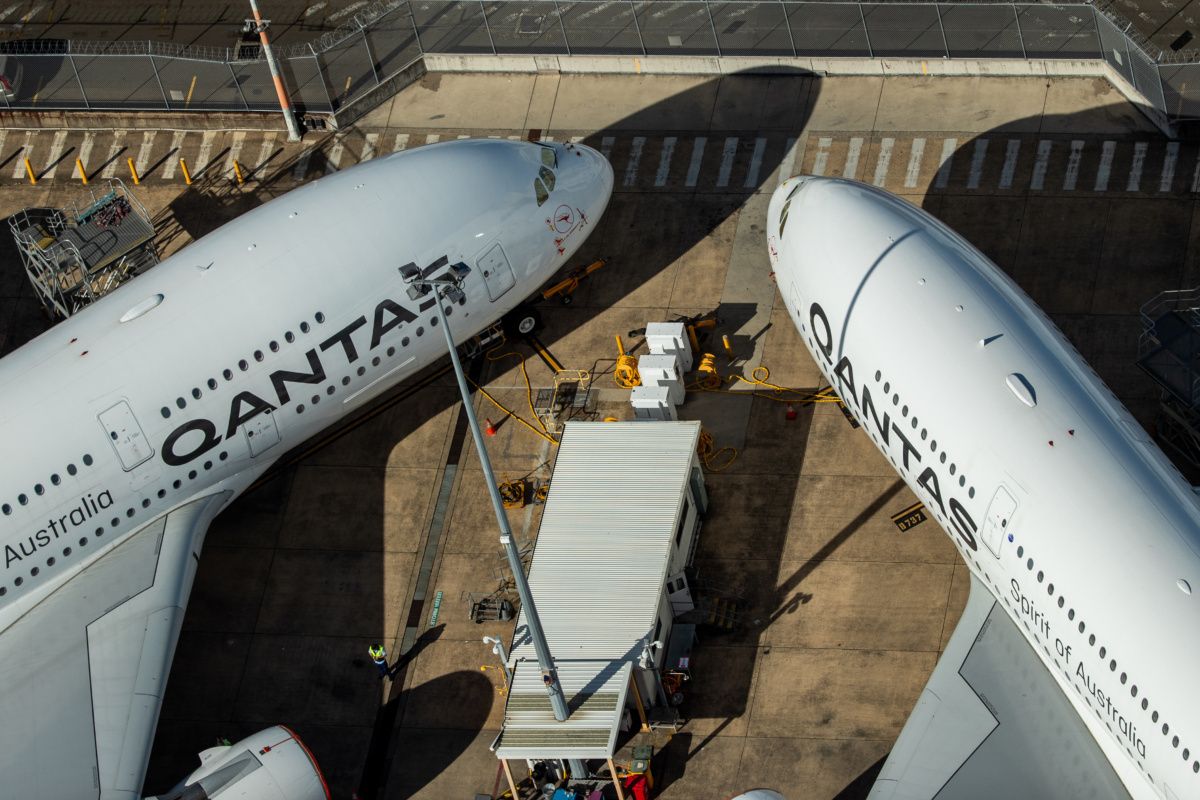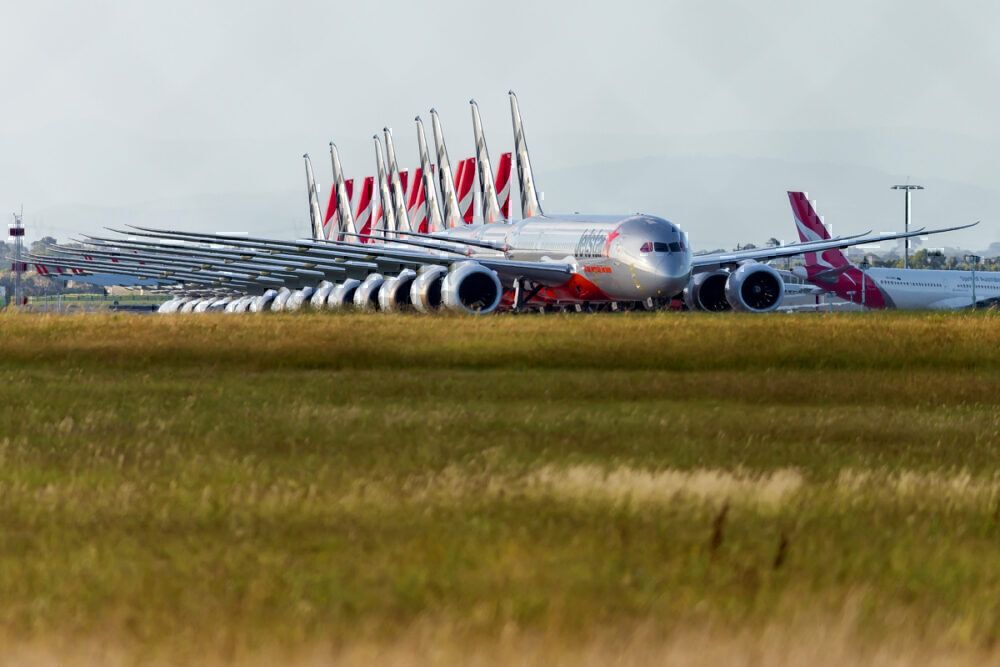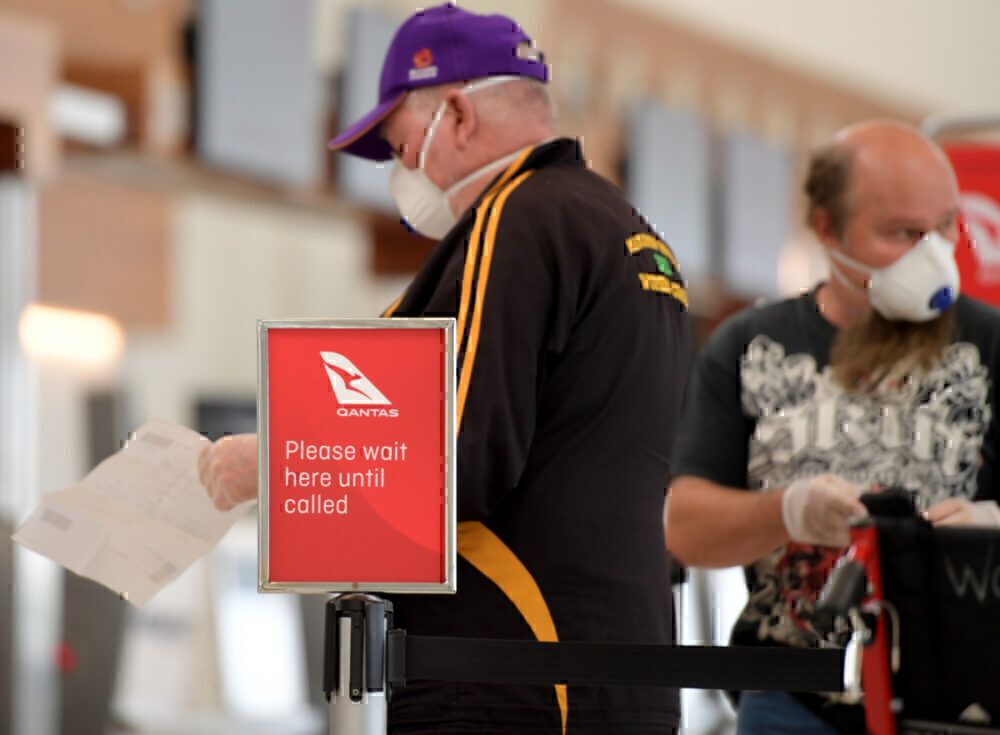The Qantas Group has unveiled its plans for flying in a post-COVID environment. The airline and its subsidiary JetStar will implement measures including enhanced cleaning, sequenced boarding, and reduced inflight service in a bid to keep passengers safe. However, bucking a trend seen across aviation, it will not be mandating the wearing of masks and will be filling aircraft to capacity.
No masks, no distancing
As airlines begin to look to a resumption of normality, at least to some degree, we’re starting to see how flying could be shaped in the future. Alongside extra cleaning of planes in between flights and PPE for flight attendants, many have already introduced compulsory mask-wearing in a bid to keep passengers safe.
Unfortunately, Qantas will not be joining the ranks of airlines requiring the wearing of face coverings. In a move that has been slammed by infectious disease experts, the airline has said it will not make wearing a mask mandatory but will recommend it ‘for peace of mind.’
The airline has come under fire for not looking on social distancing as a real option. Chief executive Alan Joyce told a press conference, as reported by the Guardian, that socially distant flying was just not financially viable. He said,
“If we take the middle seat, airfares will probably go up by around 50% … but even the middle seat only gives you 60 centimetres between passengers.”
He noted that, in order to adhere to the 1.5m separation that is being widely recommended in many parts of the world, only 22 passengers would be able to fit on a typical narrowbody flight.
“That means airfares are going to be eight to nine times more than they are today. And so, if it’s not needed and it isn’t needed by the medical advice, it definitely economically will not be justified.”
Planes are safe enough already
Qantas has said that both the airline and its low-cost subsidiary Jetstar will hand out masks and encourage passengers to wear them. They will also board in sequences, push for online check-in, and ask passengers not to move around in the cabin too much. Passengers will also be given sanitizing wipes onboard, and service inflight will be simplified to minimize contact between passengers and crew.
Ian Hosegood, medical director for Qantas, said that he didn’t believe masks were necessary. The Guardian reported him as saying,
“Even at the peak of the pandemic when people flew with Covid, we haven’t seen any confirmed cases of in-flight transmission. Even globally, where thousands of people have flown with Covid, there are only a handful of suspected cases, and none confirmed.”
Qantas believes that the combination of hospital-grade HEPA filters, seats all facing the same way, and high headrests blocking transmission would be enough to keep its passengers safe. However, this fails to take into account people who may not face forwards for the entire flight, those who get up to use the bathroom and pre- and post-flight encounters such as at the baggage carousels.
The Transport Workers Union (TWU) has branded the Qantas proposals ‘troubling’ and is calling for a national plan to be instigated by the government. However, Hosegood maintains that it would be difficult to mandate mask-wearing across the industry, as some passengers will not find it easy to comply. He cited those with medical conditions and young children as being of particular concern.
What do you make of Qantas’ post-COVID travel plans? Do they go far enough? Let us know your thoughts in the comments.



